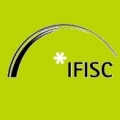


Indirect reciprocity is one of the basic mechanisms to sustain mutual cooperation. Beneficial acts are returned, not by the recipient, but by third parties. Indirect reciprocity is based on reputation and status: it pays to provide help because this makes one more likely to receive help in turn. The mechanism depends on knowing the past behavior of other players, and assessing that behavior. There are many different systems of assessing other individuals, which can be interpreted as rudimentary moral systems (i.e. views on what is 'good' or 'bad'). In this contribution, we describe the competition of some of the leading assessment rules called SUGDEN and KANDORI by analytic methods. We show that the sterner rule KANDORI has a slight advantage in the sense that KANDORI-players have more chance to earn higher payoff than SUGDEN-players in the presence of unconditional altruists. On the other hand, we see that the unconditional altruists are eliminated in the long run in social evolution and that stable polymorphisms of KANDORI and SUGDEN can subsist, but that even in those polymorphic states a moral consensus is realized: all players' images are the same in each observer's eyes.